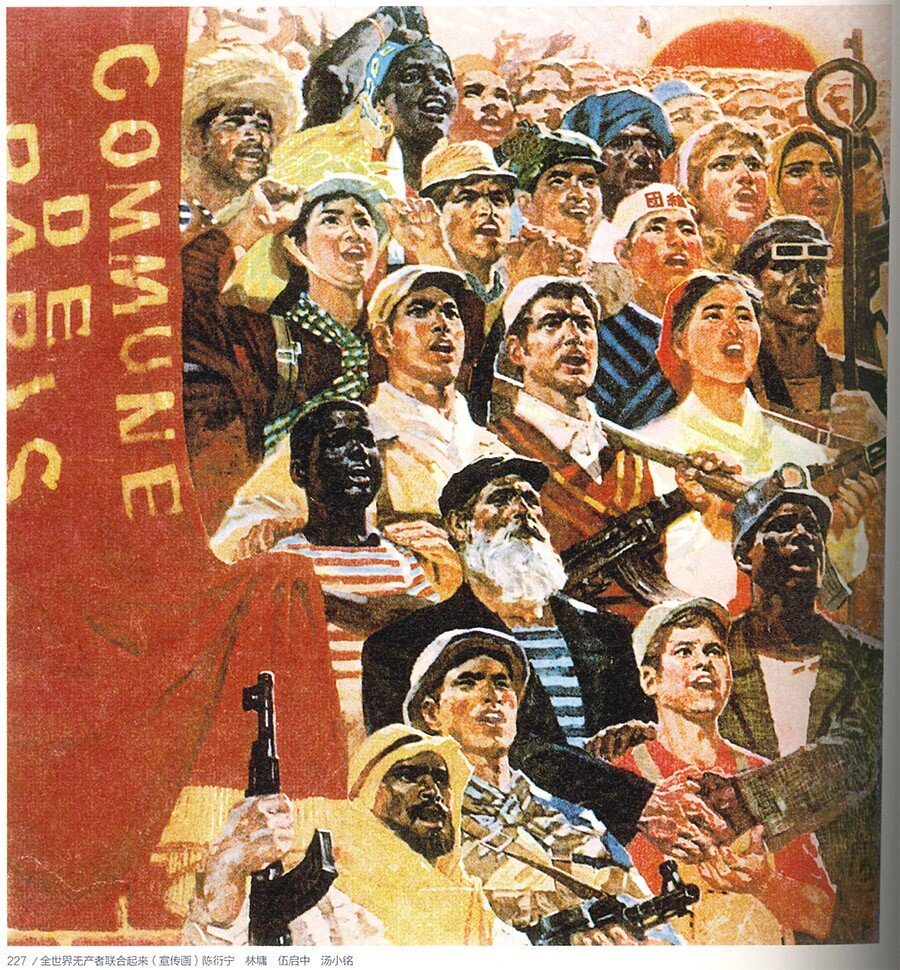By Ruodi Duan
Republished from Fairbanks Center.
With funding from the Fairbank Center this past summer [2017], I visited four archival and document centers in greater China: the Beijing and Shanghai Municipal Archives, the Guangdong Provincial Archives, and the University Services Center at the Chinese University of Hong Kong. Through official state memos and event proceedings, my aim was to reach a more nuanced understanding of Third World internationalism as performed and construed in local, post-1949 Chinese contexts.
My earlier research of Chinese newspapers and other periodicals from the 1960s and early 1970s suggested that — contrary to Frank Dikötter’s argument — racial difference in Maoist China did not merely become subsumed under class categorization: it crystallized and defined it. As my research develops, however, I am beginning to see a more complex reality of rhetoric and action during the era.
The archival sources I examined this summer, for example, indicate that even as the Chinese state — in print, culture, and through performed acts of solidarity — fleshed out the dynamics of racial hierarchy within the U.S. and presented itself as a champion of anti-imperialism and racial nationalism, it ultimately threw its weight behind a strategy of “race struggle is class struggle.” In effect, the People’s Republic publicly acknowledged and denunciated the salience of race to world politics while attempting to harness that insight to a broader campaign for global socialism. The achievement of global socialism would therefore be the sole and inevitable path towards dissolving racial inequities.
The annotated itinerary of African American leftist leader Robert F. Williams’ 1964 trip to China most tellingly sheds light upon this dynamic; Chinese party officials kept detailed tabs on Williams’ “ideological progress,” remarking that a previous visit had first opened his mind to the correct notion that “[white] racial nationalism cannot be countered with [black] racial nationalism.”
“Proletariat of the world, unite,” propaganda poster by Chen Yanning, Lin Yong, Wu Qizhong, and Yang Xiaoming, 1968
At the Shanghai archives, the 144 pages of microfilm on a 1964 all-city conference to commemorate the one-year anniversary of Chairman Mao’s “Statement Supporting Black Americans in Their Just Struggle against Racial Discrimination”— featuring drafts of speeches from worker, student, and women leaders — also proved illuminating. This motley collection of speakers drew explicit parallels between Chinese historical experiences of semi-colonialism and contemporary black American movements; they decried race-based discrimination and lauded national liberation movements but nonetheless, frequently harkened back to Mao’s dictum that “racial struggle is fundamentally a matter of class struggle.”
This may not be as paradoxical as it might initially seem. Indeed, it was practical for China’s internationalist strategy to espouse deeply sensitive readings of racism in world affairs and history while advocating non-racial solutions. The inferences to racial semi-colonialism in pre-revolutionary China as a condition comparable to contemporary black America only heightened the desirability and efficacy of a certain political trajectory: working-class revolution as the antidote to the abuses of racial capitalism. It is precisely the yoke of racial oppression that would spur African Americans to take dominant roles in the anti-capitalist, anti-American campaign. The success of such an effort would allow for race to disappear in the U.S., just as it purportedly had in China. In effect, black nationalism would be refashioned into a weapon of international class struggle.
Robert F. Williams meeting Mao Zedong in 1964.
The Chinese endeavor to cultivate political alliance with the African American left was meticulous, targeted, and effective. In Inner Mongolia, Williams expressed his amazement as students and workers gathered to perform African American fight songs for him in factories and on the streets. At the National Minorities Institute in Beijing, he asked to be photographed with sacred Tibetan texts as testament that the Chinese way would continue to tolerate, if not honor, religious traditions. He and his wife made arrangements for their two children to study in China, and Robert carried on extensive political discussions with senior Chinese officials on the role of Cuba in the Sino-Soviet Split.
Members of the Black Panther Party hold up Mao’s “little red book.”
Huey P. Newton meeting with Premier Zhou Enlai in September 1971.
Moving forward, I plan to continue charting the depictions and functions of China in African American social movements for civil rights and Black Power, with sensitivity to the complexities and nuances within the Chinese receptions to black nationalism. This is a dynamic, ever-evolving story that roughly paralleled but did not absolutely correlate with either political currents within China (such as the Cultural Revolution) or African American civil movements. Teasing out these multi-faceted dimensions of black nationalism in China will expand our broader historical knowledge of racial nationalism as a force in the Cold War international arena, and especially of the civil rights movement as an event of truly global inspirations and consequences.
Ruodi Duan is a Ph.D. candidate in Harvard’s History Department researching race and ethnic studies in the Cold War, with a focus on Chinese depictions of African American social movements. This article received an “honorable mention” in the Fairbank Centers 2016 Travel Essay Competition.










